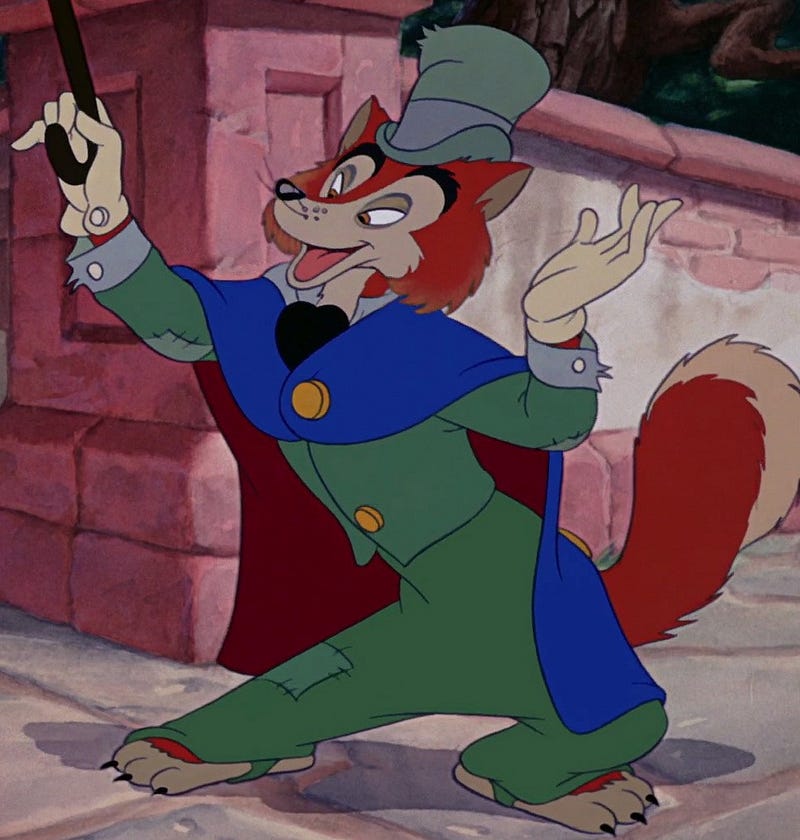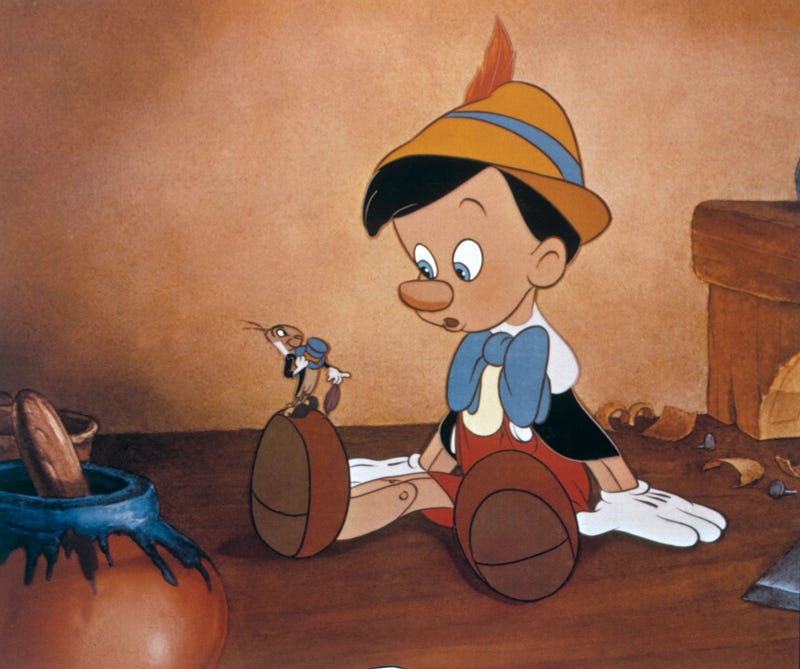A Reflection on the Role of Art in Challenging Times
Written on

Are the creative impulses of humanity solely driven by ego? This question arises particularly in the context of art during a time of global quarantine.
The onset of the Coronavirus pandemic revealed an unsettling truth: many activities and events that we deemed essential were abruptly canceled. Within days, major festivals like Coachella and SXSW were postponed, and sports leagues halted their seasons indefinitely.
> There is a reason music, dance, and visual art are integral to every world religion or spiritual movement.
The music industry faced significant upheaval, as artists who relied on live audiences suddenly found themselves without a platform to showcase their talents. In response, many turned to virtual platforms, offering live-streamed performances to connect with fans. Notable artists like Drake and Billie Eilish achieved remarkable success in this new realm, gathering millions online to experience their music.
Yet, despite the triumphs of a few well-known figures, many independent artists are left questioning the value of their dreams. What took years to cultivate can be dismantled in mere months, and it seems that the mantra of "you can achieve anything if you try" may not hold true in every circumstance. The reality is that "following our dreams" can be hindered by factors beyond our control.
I believe that artists in various disciplines—be it visual arts, music, or dance—often pursue their passions because these endeavors serve as a conduit for expressing deeper truths and the manifestation of the divine in daily life.
At its core, art represents a transformation of chaos into something that can be appreciated or analyzed. Take dance, for instance; it seeks to impose order on a series of movements to convey emotion. The addition of musical or visual elements enhances this expression, allowing us to collectively engage with what was once chaotic.
The importance of music, dance, and visual art in spiritual practices has persisted throughout history. For ages, these forms have been employed as pathways to divine understanding. Today, however, as traditional religious practices wane, the arts occupy a unique and perhaps unprecedented position in our society.
> If we pause and reflect on the advice imparted to us throughout our lives, we can uncover the wisdom passed down from those who faced real hardships.
Currently, the arts often serve to bolster the ego and provide a sense of freedom that remains elusive to those not engaged in artistic pursuits. In a capitalist society, the arts frequently function as a means of survival rather than a tool for self-discovery or the pursuit of personal truth. While some may view this as a necessary adaptation, others argue that it compromises the essence of art.
In the digital landscape, art is frequently treated as a commodity, with an emphasis on metrics and financial success. It can be challenging to embrace a hobby without the pressure to monetize it. Once one reaches a level of competence, the allure of profit often overshadows the joy of creation.
Communities now form around the belief that specific art forms can lead to the lifestyles they desire. Those less inclined towards business acumen are often told to "suck it up" when they express concerns about commercializing their art. The prevailing sentiment suggests that without adherence to certain strategies, one cannot sustain a living through their craft.
This mindset diminishes the value of art, relegating it to a category where only financially viable creations are deemed "worthy." This perspective is flawed, as it overlooks the diverse expressions of art that may not yield monetary rewards. Today, we witness major label artists being idolized, while in the pursuit of creating what society deems "good art," many sacrifice their authentic voice.
The underlying issue, in essence, is capitalism. This economic model often exploits human nature for profit. The adage "sex sells" is rampant in the entertainment industry, where manipulating consumer behavior is commonplace. Despite our instincts warning us of the moral implications, we continue to market our art and truths under the guise of "that's just how it is."
As the entertainment industry faces its collapse, uncertainty looms over when life will return to normal, allowing us to enjoy performances and gatherings once more. There are fears that this disruption could set back the industry for years, compounded by the lingering anxiety surrounding large crowds.
Additionally, we contend with the persistent warnings from authority figures who cautioned against pursuing careers in the arts, labeling them as unstable and fraught with mental health challenges. Perhaps there is some truth to their skepticism, albeit partially.

The movie "Pinocchio" (1940) has greatly influenced my reflections on this subject. The story follows Gepetto, who creates a puppet that comes to life, guided by the principles of bravery, selflessness, and truth. Throughout the narrative, Pinocchio faces trials that reveal his struggle to embody these values.
This tale serves as a moral lesson, mirroring the conventional values of hard work and sacrifice, particularly relevant in the context of its post-Depression and pre-WWII release. While Pinocchio achieves fame as an entertainer, he ultimately finds himself trapped and exploited by others for their gain.
In his journey, he encounters a group of delinquents whose reckless behavior leads them to Pleasure Island, where they are cursed to become donkeys and forced into labor. The moral is clear: those who indulge in such actions may lose their ability to discern right from wrong.
The narrative symbolizes a coming-of-age journey, where a naive protagonist learns the importance of integrity and morality. However, we must consider the historical context of its release—an era marked by economic hardship and societal upheaval. As countless individuals lost their jobs during the Great Depression, communities sought values that would support collective resilience.
> Even the most prominent artists, like Drake and Billie Eilish, find themselves in similar predicaments, earning no more than local musicians.
With the recent economic downturn, we are reminded of the relevance of the lessons imparted in "Pinocchio."
"Go to college and earn a degree."
When reflecting on the stern advice given to us, we can recognize the wisdom behind it, shaped by those who endured their own crises. This current crisis is unfamiliar to us, lacking any historical reference point to guide our understanding.
In the past four decades, significant events like 9/11 and the Great Recession compelled many to reevaluate their roles in history. Although these occurrences were traumatic, they pale in comparison to the scale of suffering witnessed during WWII and the Great Depression. The generations that lived through those periods may have cultivated ideals similar to those portrayed in "Pinocchio," yet our current understanding of such values is limited by our lack of direct experience with profound hardship.
Now, as our economy falters, we are confronted with the significance of the lessons passed down to us. We took for granted the freedoms we enjoyed—the ability to gather for music and art without hesitation. We must confront this reality, lest it overwhelm us.
Traditionally, artists earn a living through live performances or exhibitions. However, during a financial crisis, we must reconsider the value of our art. A typical album release for a musician often involves extensive marketing, merchandise production, and tour scheduling, creating a cycle of commercial pressure.
Moreover, the presence of unscrupulous promoters and venue owners complicates matters, as the entertainment industry is rife with those eager to capitalize on artists' aspirations.
Yet, people never truly needed to attend these events; they likely enjoyed the experience of connecting with musicians and supporting their dreams.
Today, we find ourselves unable to create art purely for the sake of self-affirmation or as a means to escape the confines of our day jobs. Even top influencers like Drake and Billie Eilish are not immune to the challenges faced by local artists.
Ultimately, we must ponder why we create. What message do we yearn to share? Who are we, and is our pursuit of artistic dreams merely a quest for power in a society that idolizes fame? In an era dominated by social media, fame seems more accessible than ever.
Successful individuals often advise playing the game to achieve success, but this journey may lead us down unforeseen paths, overshadowing our initial intentions. Perhaps we no longer need to engage in the relentless self-promotion that accompanies the art world. As the pandemic slowed the constant flow of content, many artists found themselves free to simply exist.
Every headline about the Coronavirus highlights its disruption of daily life, urging us to question the systems we inhabit. Elevating art to a pedestal within capitalism is unsustainable. Why do we create? If our art is to be deemed "good," it must transcend human values and reach for the divine.
The core principle is to ensure that art reflects our true selves. It becomes glaringly evident when art devolves into mere capitalism, devoid of authenticity and truth.
We can adapt, as humanity has repeatedly demonstrated. I remain skeptical of apocalyptic predictions; instead, I foresee a gradual decline that becomes unrecognizable. Those who forecast the end of the world have done so for millennia and will continue to do so for countless more.
If we are to extract any positives from this crisis, we must acknowledge that we may have taken our previously indulgent lifestyles for granted. We could travel freely, gather with others, and pursue our desires. It is essential to recognize the importance of art in a time when many cannot afford extravagances.
Thus, we must once again ask ourselves, "Why do we create, and for whom?" Only by answering these questions can we begin to understand our purpose in this reality.
Thank you for reading. For any ILLUMINATION writers, feel free to share your thoughts in the comments. I look forward to hearing your perspectives on this topic.
As always, Gabrielknowseverything